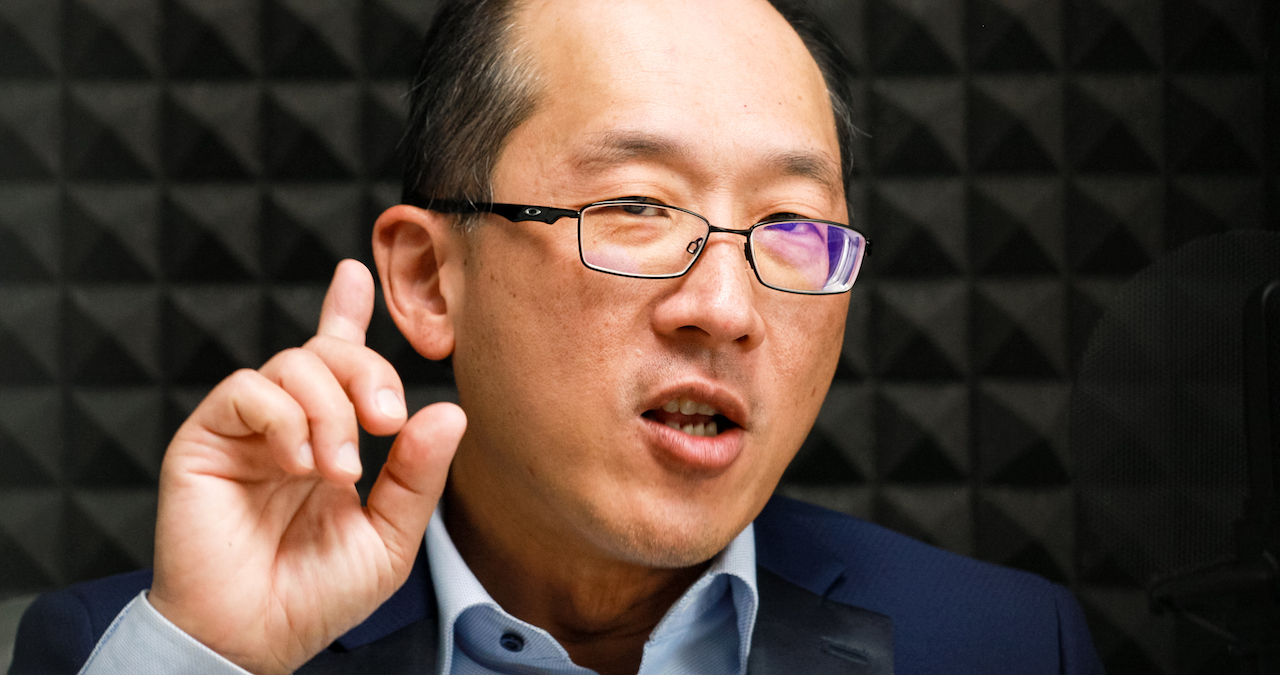+ Dr. Amos Yong introduces James, a letter written to an immigrant diaspora, encouraging its readers toward purity and warning them against conformity to the world.
 Amos Yong is dean of the School of Theology and the School of Intercultural Studies at Fuller and professor of theology and mission. His research interests include global Pentecostalism, theology and disability, theology of religions, and interfaith dialogue. He has authored or edited nearly four dozen volumes and published more than 200 articles.
Amos Yong is dean of the School of Theology and the School of Intercultural Studies at Fuller and professor of theology and mission. His research interests include global Pentecostalism, theology and disability, theology of religions, and interfaith dialogue. He has authored or edited nearly four dozen volumes and published more than 200 articles.

“[James] certainly has some very, very steep commitments about what purity means, about what it means to be undefiled by the world and its systems and its structures.” – Amos Yong
Transcript
Amos Yong introduces James, a letter written to an immigrant diaspora, encouraging its readers toward purity and warning them against conformity to the world.
Good afternoon.
I’m Dr. Amos Yong. I’m the dean of the School of Theology and the School of Intercultural Studies. And today, we’re looking at the letter of James in the New Testament.
The letter of James is written to immigrants, immigrants across the Mediterranean Diaspora. And so, I’m excited this afternoon to look at the letter of James partly in light of this lens of migration, of immigration, of the experience of moving across cultures, across national boundaries.
There’s a famous verse in James chapter 1 that I’m sure many of us have heard: “Religion that is pure and undefiled before God the Father is this, to care for orphans and widows in their distress, and to keep oneself unstained by the world.” So James wants to talk about the kind of piety, the kind of commitment, the kind of devotion—as Jewish followers of Jesus, Christians—that is focused, not on the ways of the world, not on the wisdom of the world, not on being stained by the world, not on adapting and becoming too comfortable and close with the world, but that needs to stand pure and undefiled before God.
One of the other aspects of becoming assimilated to the world, from James’s perspective, is how the believers are being seduced, or could easily be seduced, by wealth. In the first century, it’s very very common that you want to get as many friends who are higher up the social ladder, higher up the economic ladder, than you are. Why? The more friends you have in higher rungs of society, the more access you have to the benefits that accrue from having those relationships. The more access you have to the resources available in those relationships and so on. Here’s the thing. Of course if you’re an immigrant group, of course if you’re a migrant, just coming into a new country, into a new region, into a new social, and economic, and political world that you’re a stranger to, wouldn’t you gain from having friends in higher places? Having those who have resources be a part of your community?
James starts hitting home for many of us I think, isn’t it true? Whether or not we’re immigrants. In some ways we all want to move up, if you will. Socially. Certainly economically. What’s the harm of having greater access, we might want to ask ourselves. Well, we might want to continue reading James. He might make us feel quite uncomfortable in this regard. He certainly has some very very steep commitments about what purity means, about what it means to be undefiled by the world, and its systems, and its structures. And he’s naming one of those right here when he’s addressing wealth and affluence—how they could be corrupting, how they could be seductive, how they could compromise our most fundamental commitments which are to the Lord Jesus Christ.
Let us close by reading James’s thoughts about prayer which end his letter.
“Are any among you suffering? They should pray. Are any cheerful? They should sing songs of praise. Are there any among you sick? They should call for the elders of the church, have them pray over them, anointing them with oil in the name of the Lord. The prayer of faith will save the sick, and the Lord will raise them up, and anyone who has committed sins will be forgiven. Therefore, confess your sins to one another, and prayer for one another so that you may be healed. The prayer of the righteous is powerful and effective. Elijah was a human being like us, and he prayed fervently that it might not rain, and for three years and six months it did not rain on earth. Then he prayed again, and the heavens gave rain, and the earth yielded its harvest.”
